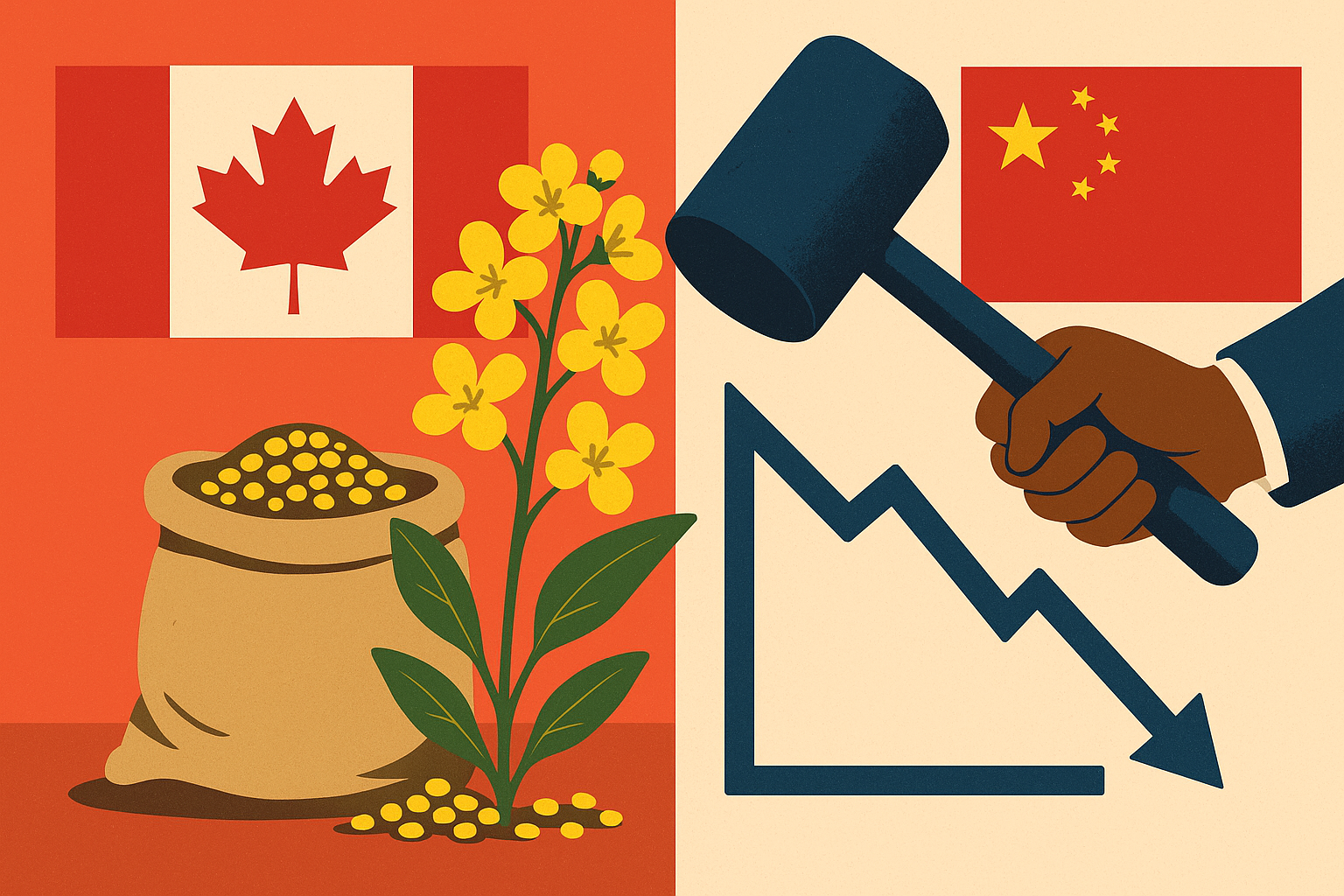Canada’s agricultural export sector faces renewed scrutiny as China implements new tariffs on Canadian canola, following accusations of dumping that Ottawa firmly denies. The development has sparked concerns among Canadian farmers and exporters about potential disruptions to trade flows and revenue streams, highlighting the growing intersection of geopolitics and commodity markets.
The dispute underscores how trade tensions between major economies can influence both commodity pricing and the broader investment landscape, especially in sectors reliant on international markets.
Why This Matters for Investors
Canola, a cornerstone of Canada’s agricultural exports, is heavily linked to global supply chains and pricing dynamics in edible oils and biofuels. Tariffs imposed by China—the world’s second-largest importer of canola—could tighten supply-demand balances, pushing prices upward or causing volatility in related commodity markets.
Financial analysts from Bloomberg Intelligence highlight that “tariff actions and political disputes in key agricultural corridors can trigger price swings, margin pressures, and broader risk sentiment among investors in agribusiness equities and ETFs.”
Core Analysis of the Trade Dispute
- Canada’s Position: The Canadian government has rejected claims of canola dumping, emphasizing compliance with World Trade Organization rules and transparency in pricing mechanisms.
- China’s Tariffs: Newly instituted tariffs are set to affect Canadian canola exports, creating uncertainty for contracts already in transit and future deliveries.
- Market Reaction: Traders are watching futures markets closely, with preliminary moves reflecting cautious optimism tempered by potential supply disruptions.
The political and regulatory environment is critical. Analysts note that even short-term disruptions can influence both spot and futures prices for canola, as well as affect related equities in agricultural commodities, equipment, and fertilizer sectors.
Future Trends to Watch
- Diplomatic Negotiations: Ongoing Canada-China talks could shape tariff adjustments, exemptions, or trade resolution agreements, directly impacting market confidence.
- Commodity Price Volatility: Investors should monitor canola and related edible oil prices for signals of potential upside or risk.
- Agricultural Equity Performance: Companies with significant exposure to Canadian canola exports—such as processors, traders, and farm equipment suppliers—may experience earnings variability linked to trade developments.
- Policy and Regulatory Shifts: Future WTO rulings or bilateral trade agreements could redefine the market landscape for Canadian agricultural exports.
The situation exemplifies how geopolitics increasingly intersects with investment decisions, especially in sectors with concentrated export exposure.
Risks and Considerations
While opportunities exist, investors should remain aware of potential risks:
- Trade Disruption: Prolonged tariff imposition or escalation could reduce export volumes and revenue for Canadian producers.
- Price Uncertainty: Volatility in commodity prices may affect profitability for agribusiness companies and related ETFs.
- Broader Political Spillovers: Escalation in trade tensions could spill over into other agricultural commodities or sectors with cross-border exposure.
Key Investment Insight
Investors focusing on the agriculture sector may benefit from proactive monitoring of policy developments and commodity market movements. Strategies include:
- Allocating capital to diversified agricultural ETFs to mitigate single-commodity risk.
- Considering exposure to companies with integrated supply chains or diversified export markets.
- Tracking futures and options markets for price signals and hedging opportunities.
Canada’s rejection of China’s dumping claims, combined with new tariffs, illustrates the delicate balance between geopolitics and commodity markets. Investors positioned to understand and anticipate these shifts can navigate both risk and opportunity in the evolving agri-trade landscape.
Stay informed with MoneyNews.Today for timely coverage of trade developments, commodity insights, and strategic investment guidance.





